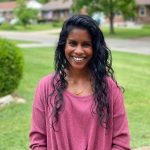For many adoptees, answering questions about adoption can often be challenging and may elicit many uncomfortable feelings. For transracial adoptees, it can be even harder to avoid these conversations because of the distinct and noticeable differences between the adoptee and the adoptive family.
Adoptees, transracial or not, should not feel obligated or expected to share their story. Probing questions and comments can be unwelcome and inappropriate. When it comes to adoption, please remember that just because something is different does not mean that you need to constantly point out the differences.
I have spent most of my life resenting many of the questions and comments listed below, but I believe that educating others is where change occurs. The following are comments and questions many transracial adoptees, like myself, get asked or hear on a regular basis that do not need to be said.
1. “What are you?”
If you are a minority or a person of color, you have probably been asked this question. It is by far my least favorite question and, no matter how many times I get asked this, it still frustrates and hurts me immensely. In fact, it is often classified as a microaggression.
So here is the truth: As a transracial adoptee, if I had to answer this question literally, I would reply, “I’m human.”
It took me a while to understand why people asked this. I believe it stems from people not being able to place me in an obvious racial category. If you have a question about someone’s ethnicity or race, you can ask what their race or ethnicity is. You do not need to ask someone, “What are you?”
It is incredibly offensive to minorities and people of color because it feels objectifying and demeaning.
2. “Where are you actually from?”
Although this question may seem harmless and potentially not intrusive, it is not always received as such.
I think the reason many transracial adoptees hate this question is two-fold — because it makes them feel like people do not think they belong; and because it immediately addresses and identifies the fact that they are different.
Transracial adoptees live their life every day aware of the fact that they look different, that their story is different, that their family different, etc. We do not need you to point this out.
If you do not ask someone that is Caucasian where they are actually from, then why are you asking other people this question?
Your curiosity does not warrant you the ability to ask whatever you want.
3. “I’ve always wanted to adopt from another country.”
This often feels like an automated response. I cannot tell you how many times I say, “I was adopted from India,” and someone replies with “I’ve always wanted to adopt a child from another country.”
Regardless of whether or not this this is true; you don’t need to say this. The assumption that all adoptees want others to adopt or support adoption is a false narrative.
I think people often say this because they want to find some way to connect with an adoptee or because they think it will make them look like a “good” person to an adoptee. Please do not say this in order to find a way to connect with a transracial adoptee. Know that you can connect with someone personally without having to know their entire story.
4. “You must feel really lucky to be adopted.”
If you would not say this to a biological child, then do not say this to an adopted child. Adoptees do not wake up every day feeling lucky to be rescued or saved, just like biological children do not wake up and thank their mom and dad for having them.
5. “What is your adoption story?”
Finally, just because I am transracial adoptee and I look different than my family does not mean I have a story I want to share with you. Adoptees do not owe you their story.
If you do not have a relationship with the person you are asking, then do not ask. It’s that simple.
 Ramya Gruneisen is an adoptee who lives in St. Louis, Mo. She has an educational background in exercise science and public health and works as an adjunct professor at Lindenwood University in the Health Sciences Department. One of her greatest passions is teaching and sharing her love for health and wellness with others. As a transracial adoptee, she has a profound interest and passion for adoption research and education. She believes some of the best learning is done through story. She loves spending time with friends and family, climbing mountains and watching the St. Louis Cardinals and Blues play.
Ramya Gruneisen is an adoptee who lives in St. Louis, Mo. She has an educational background in exercise science and public health and works as an adjunct professor at Lindenwood University in the Health Sciences Department. One of her greatest passions is teaching and sharing her love for health and wellness with others. As a transracial adoptee, she has a profound interest and passion for adoption research and education. She believes some of the best learning is done through story. She loves spending time with friends and family, climbing mountains and watching the St. Louis Cardinals and Blues play.



